The Impact of Climate Change on the Tourism Sector in London
VerifiedAdded on 2023/01/20
|10
|968
|55
Report
AI Summary
This research report examines the significant impact of climate change on London's tourism sector. It begins with an introduction to London's importance and the role of tourism in its economy, highlighting the sector's contribution to GDP and employment. The report then identifies climate change as a major challenge, detailing its effects on insurance costs, holiday quality, infrastructure, and the overall economy. The study explores the pathways through which climate change impacts London and its economy, including effects on GDP growth, supply chains, and the competitiveness of tourist spots. It offers recommendations such as reducing global warming, maintaining ecological balance, and preparing contingency plans. The report concludes by emphasizing the need for the tourism industry and other sectors in London to adapt to climate change through corporate social responsibility, biodiversity preservation, and the development of diverse business models, including MICE tourism.
1 out of 10


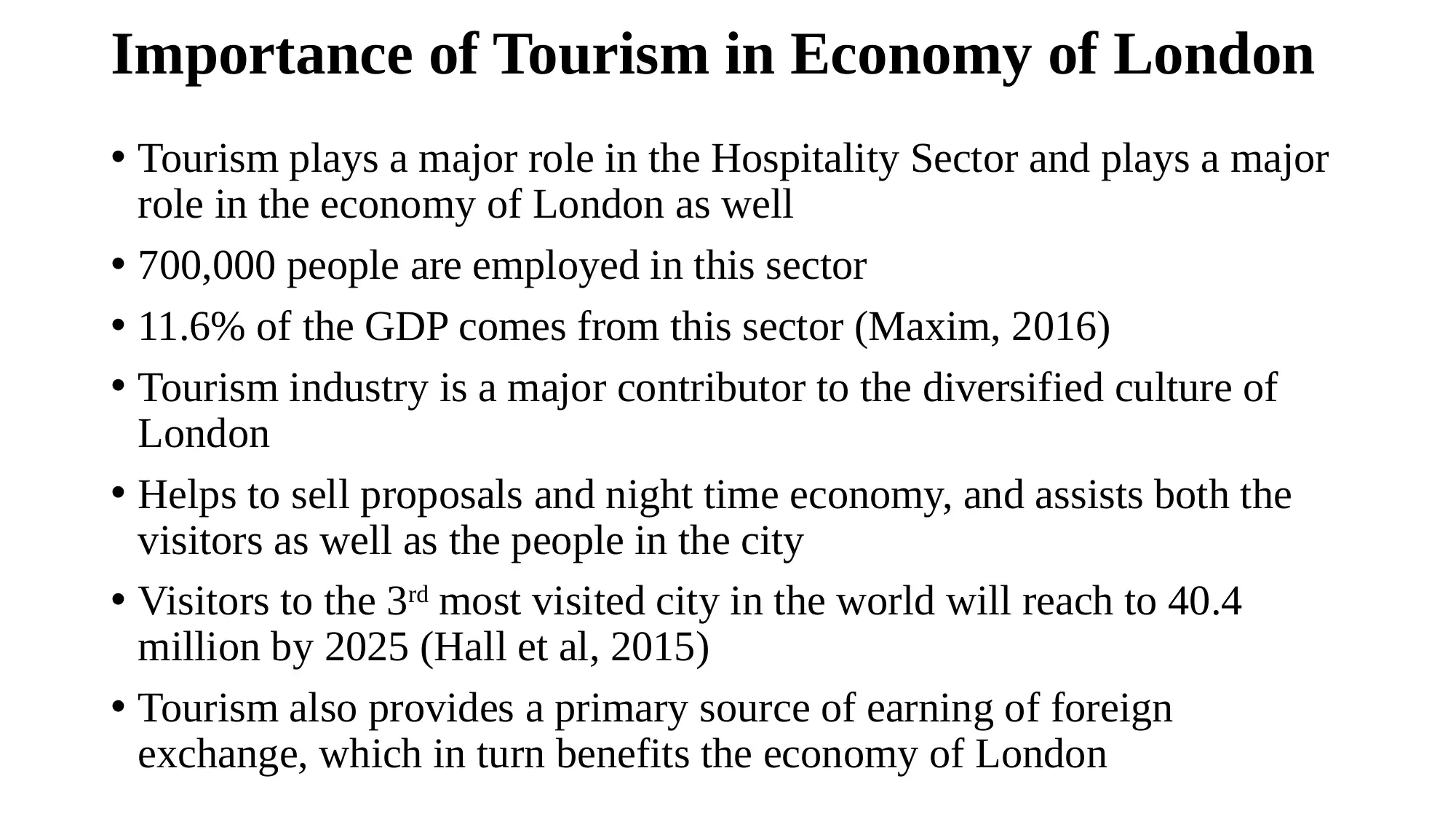

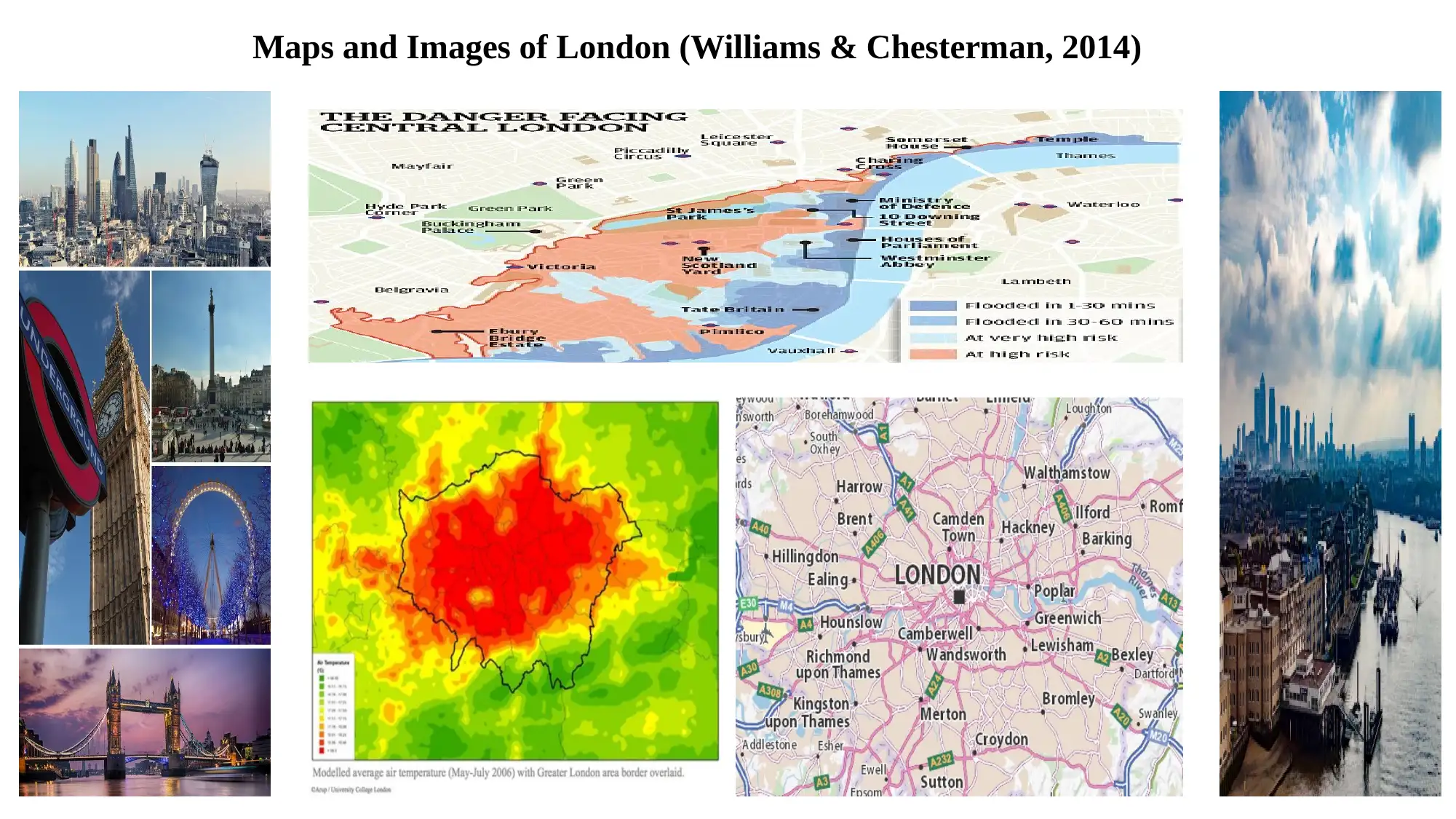


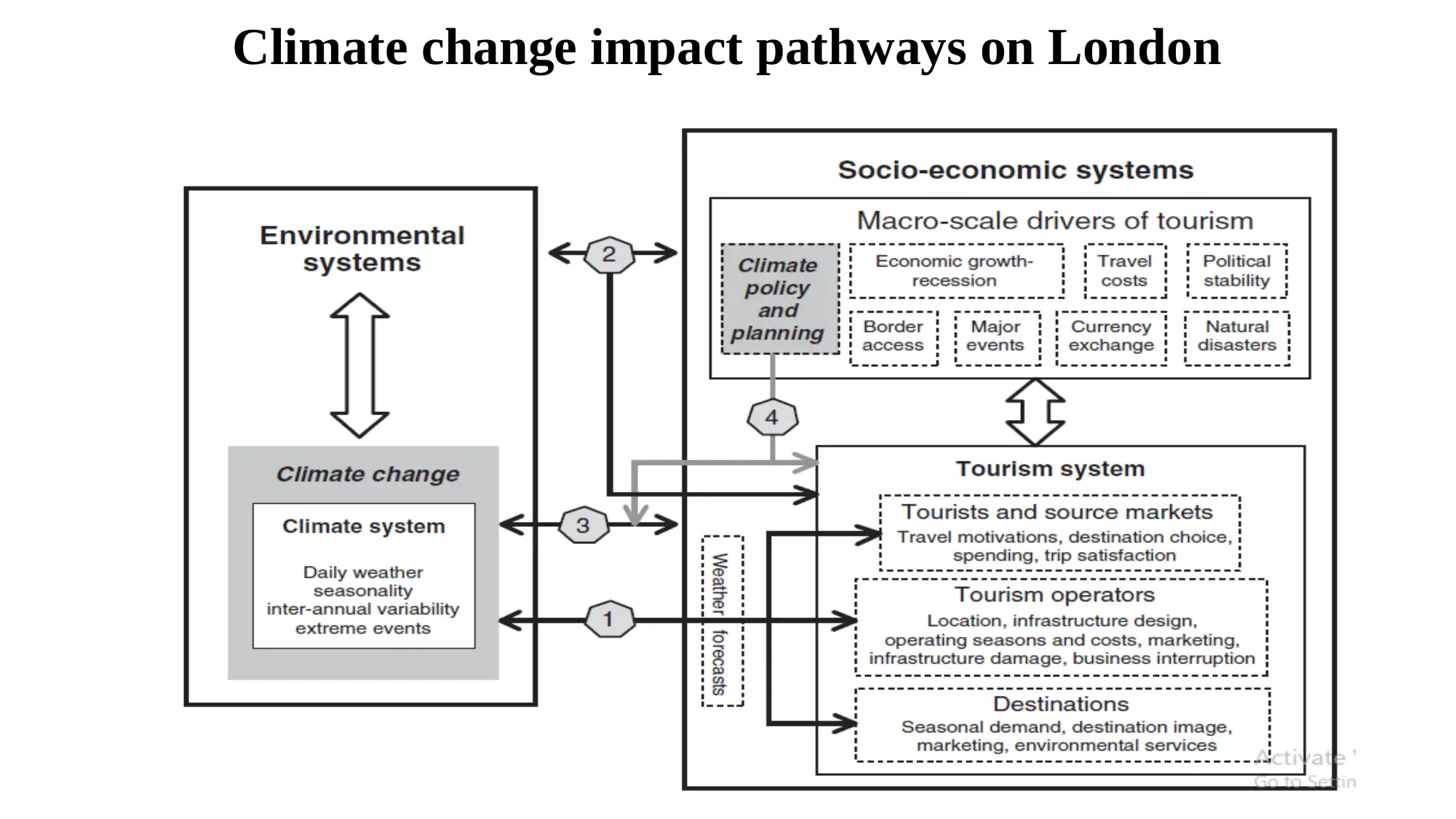
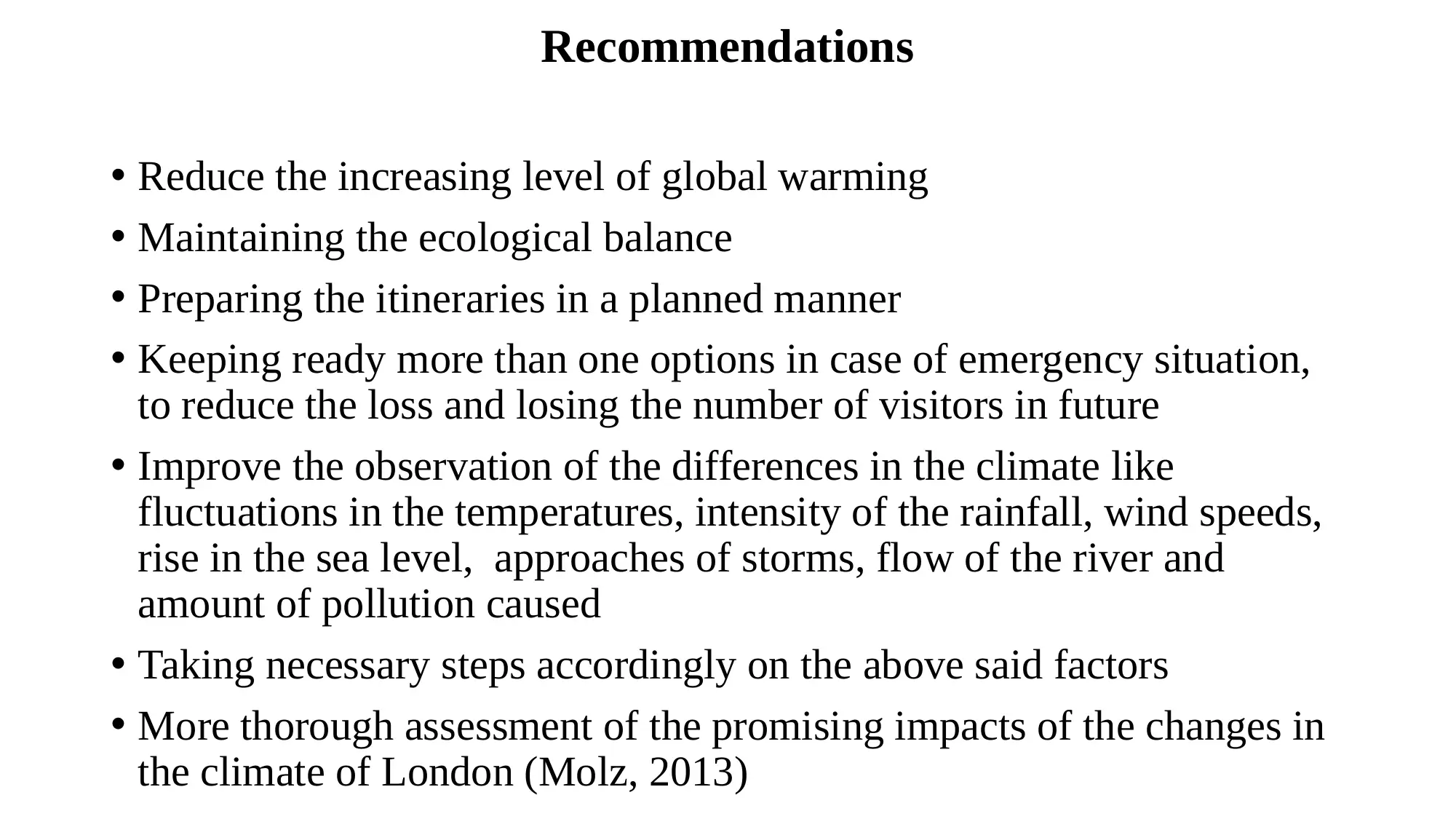
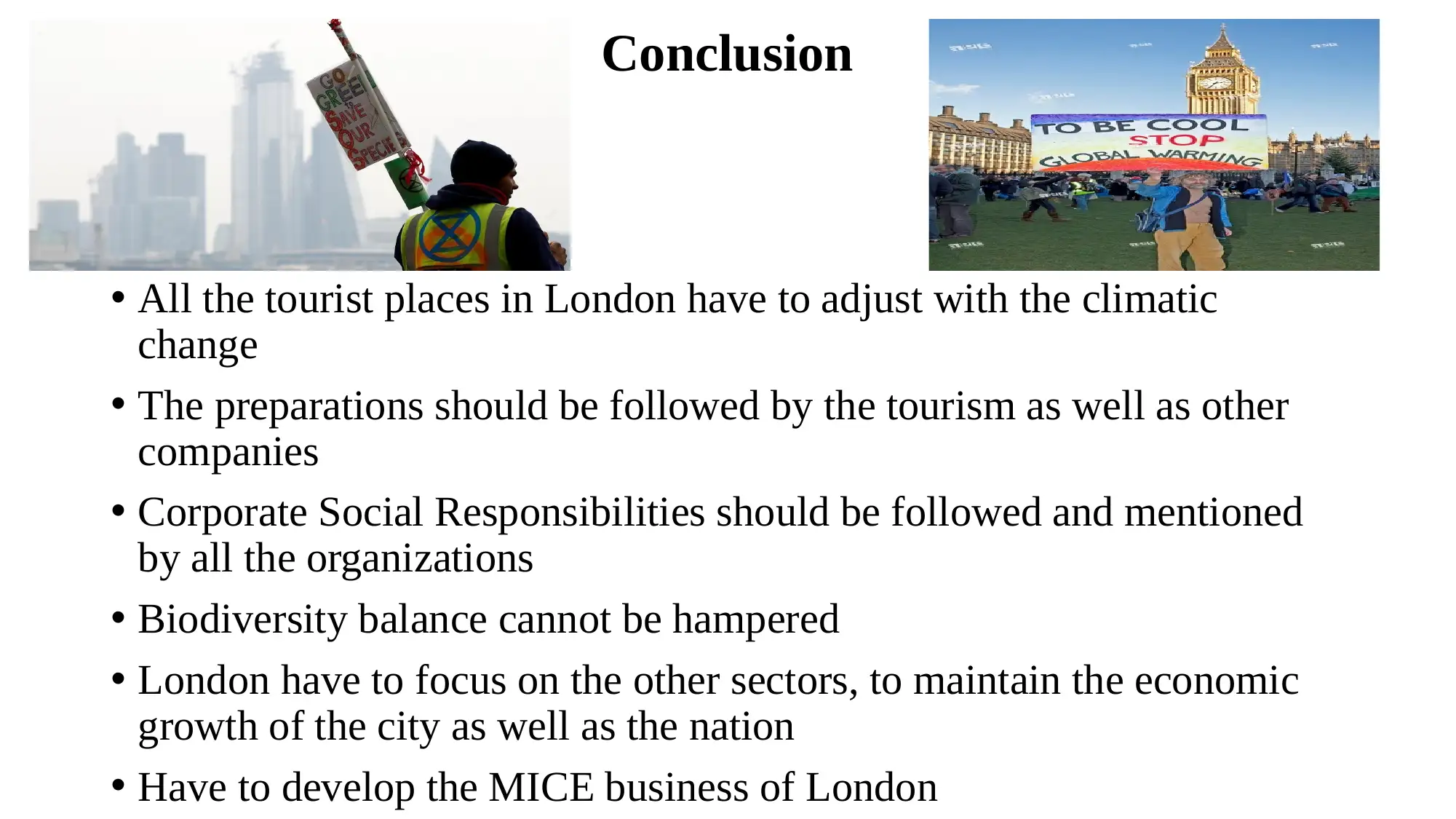






![[object Object]](/_next/static/media/star-bottom.7253800d.svg)